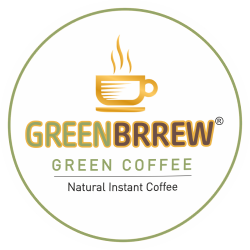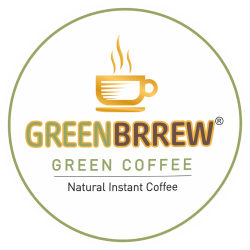Navratri, the colorful Hindu festival that venerates the divine feminine, is a time of celebration and soul searching for millions around the world. Many of the worshippers fast (vrata) for nine days. But among the restrictions of grains, onions, and many spices, one common question is, “Can we drink coffee in Navratri fast? This article explores the topic in a clear, well-balanced way, tapping into tradition, expert guidance, and practical tips for you to journey through your fasts with ease and joy.
Understanding Navratri Fasting Traditions
Navratri-Upvas is observed in different degrees according to the regional practices and family traditions. Generally, the diet of this fast consists of sattvic (pure) foods that are easy to digest, can provide enough energy, and are pure from tamasic (impure) foods such as meat, alcohol, garlic, and onions. Permissible foods are, among other things, fruits, nuts, buckwheat products (kuttu), water chestnut flour (singhara), and several regional varieties of antinutritional potatoes, such as boiled potatoes.
Do It Right The objective of the vrat is not just abstinence but spiritual upliftment and detoxification. While some observe a stringent nirjala (waterless) fast on those days, most fast the phalahar—fruit fare with a few beverages being the exception. Which brings us to the fundamental question: Where does coffee come into this? So it is more about interpreting these guidelines sensibly (for most people).
Is Coffee Permitted During Navratri?
The short answer is yes, with a few caveats. Coffee, made from roasted beans, is not narrowly “prohibited” the way grains or legumes are in traditional Navratri rules. Many practitioners and families find it acceptable, especially if it’s black or has allowed ingredients added. And, for example, some people will say that they have been incorporating coffee into their routines without any issues for years and also treat it as a non-grain-based drink that gives them a gentle energy boost.
But some stricter readings say no caffeinated beverages at all, since they stimulate and interfere with your attempt to calm down. Ayurveda and folklore propose moderation so that you don’t get dehydrated or acidic, especially on an empty stomach. If Joe isn’t on the no-fly list, as is common with an array of spiritual protocols that allow tea consumption (another caffeinated choice), it is often handled much like such: you’re allowed to have coffee, but you’re not supposed to get crazy with it. Always check with the elders or spiritual advisor in your family to get it right for your tradition.
Health Benefits of Coffee During Fasting
So if you are thinking about whether or not to drink coffee in the Navratri fast, reflect on what could be possible advantages for your system once taken mindfully. It is full of antioxidants and boosts focus and metabolism and will keep you active during long puja sessions or daily chores. In moderation, it can even assist with detoxification due to its ability to aid digestion and serve as a low-calorie source of energy.
Opting for a healthier option, green coffee—unroasted beans—also includes chlorogenic acid. The substance promotes weight loss and blood sugar control. Green coffees are well-known for being in an instant form like Greenbrrew. Greenbrrew coffee is 100% natural and simple to make. Instant green coffee is the best choice for fasting followers who wish to enjoy a good level of health rather than standard black coffee. During Navratri, green coffee is widespread, as it supports the Navratri vow of cleanliness and well-being.
Tips for Enjoying Coffee While Fasting
To make coffee a seamless part of your vrat, follow these practical suggestions:
- Opt for Black or Simple Brews: Avoid added sugars, artificial flavors, or non-fasting milks. Or, if dairy is forbidden in your tradition, use almond or coconut milk.
- Moderation is Key: Keep it to 1-2 cups per day to avoid those pesky caffeine jitters or dehydration. Serve with water, herbal teas, or fresh juices.
- Choose Quality Options: Consider brands like Greenbrrew that have instant green coffee sachets, which are 100% natural and without any added ingredients—just splendid for a fast when you could use a spot of refreshing support.
- Timing Matters: Coffee on an empty stomach first thing in the morning is a bad idea if you want to ward off acidity. Eat it alongside some fruit or nuts for balance.
By incorporating these tips, you can confidently drink coffee in the Navratri fast while honoring the spirit of the festival.
Alternatives to Coffee If You Prefer to Avoid It
If caffeine feels verboten or you’re observing a more rigorous vrat, there are plenty of refreshing alternatives. Herbal teas like ginger or tulsi, which don’t cause stimulation and are warming and supportive of digestion. Coconut water, fresh fruit juices, or buttermilk (chaas) should hydrate and refresh you. For something coffee-adjacent, there are roasted barley or chicory brews that taste similar but don’t violate fasting parameters. Greenbrrew's green coffee can also be a gentler alternative, with an herbal flavor that isn't as strong as traditional roasted coffees, so you won't have to miss out on the calming ritual.
Conclusion
In summary, whether you can drink coffee in Navratri fast is mostly based on personal or family norms, but most of the fasting is digging it out in as many ways as possible. It comes with its share of energy and health benefits, especially when you like your seasonal beverage served with additional wellness benefits from options such as Greenbrrew's natural instant green coffee to power through the festive fervor. Remember that, at the end of the day, Navratri is all about devotion and self-control—listen to your body, drink enough water, and be happy on a spiritual level. May Navratri bring peace and good health to you!
FAQ's
Q1. Can we drink coffee during fasting?
Ans. Black coffee is usually acceptable even during intermittent fasting, as long as it doesn’t include any sugar, but for stricter religious fasts or other fasts, coffee might not be allowed. Always read the rules of your fasting plan. They said adding sweetener or milk could break the fast and trigger an insulin spike. Play it safe and stick to a plain cup of coffee.
Q2. Can I have coffee in Upvas?
Ans. Black coffee is preferred for its low-calorie and all-natural appeal and also for satisfying the craving to consume energy drinks while fasting without anything unhealthy or sattvic. Purists may limit themselves to water, herbal teas, or fruit juices during this time. There's no hard and fast rule about how bitter coffee is to be drunk—only consultation with elders or priests can give advice according to the strength of your stomach.
Q3. Is coffee ok in Navratri fast?
Ans. Coffee is allowed on the Navratri fasting days, and it should be unsweetened, plain black coffee to keep it sattvic. Some go low on caffeine, choosing water or milk or noncaffeinated teas. On the main day soft drinks should be avoided, and one must have control to keep the focus spiritual. Refer to family traditions or a religious official in order to be certain of fasting rules.


